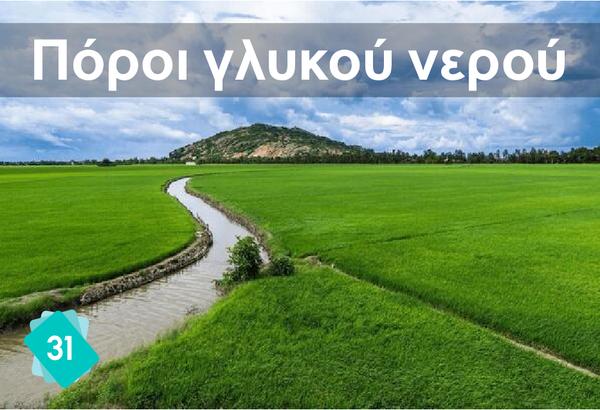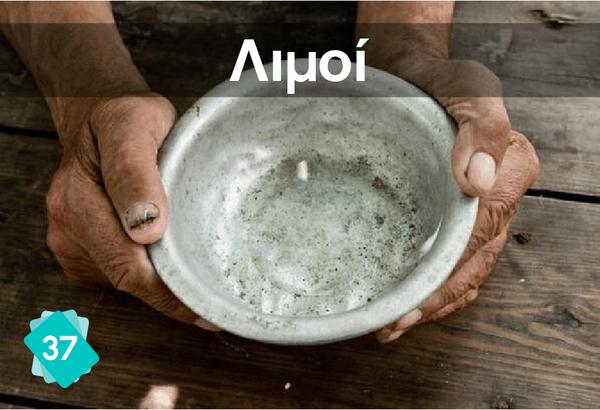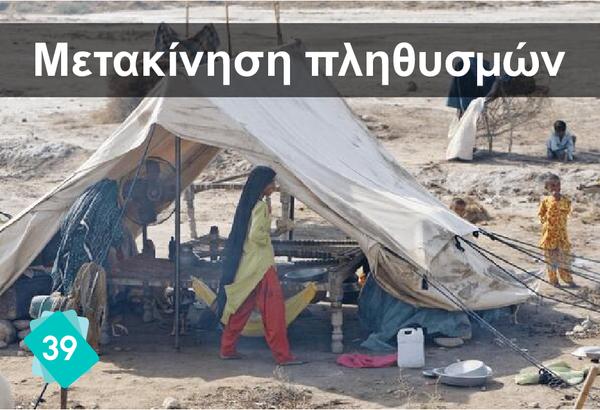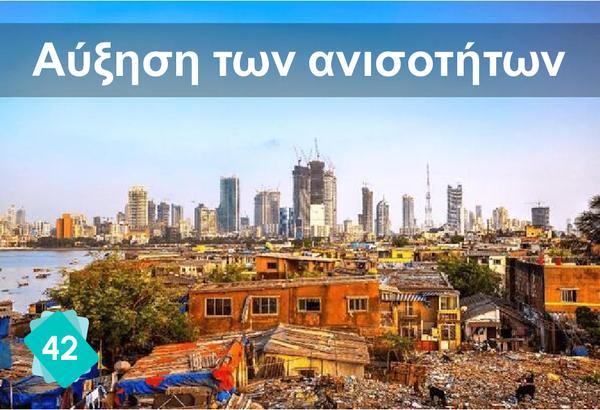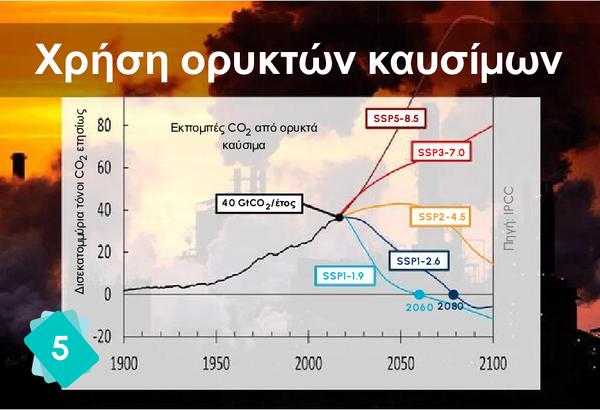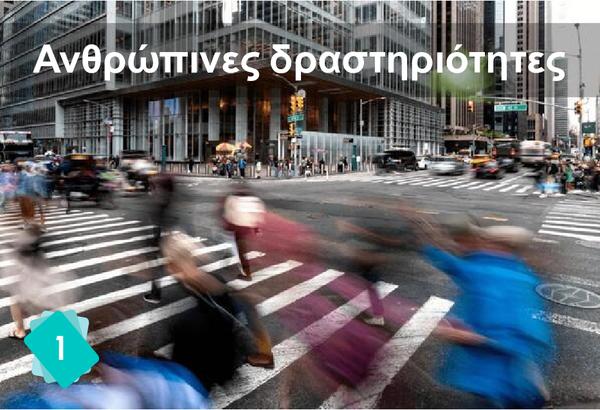40 - Ένοπλες συρράξεις
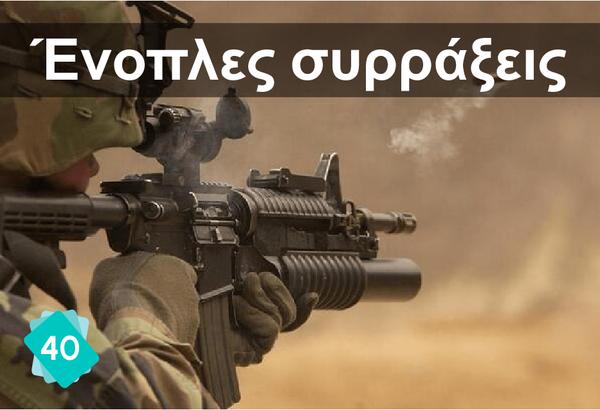
✏️ Αυτή η εξήγηση δεν είναι ακόμη διαθέσιμη στη γλώσσα σου, μπορείς να συμπληρώσεις αυτήν τη φόρμα Google για να υποβάλεις τη μετάφρασή σου.
Πρόκειται για την κάρτα που προορίζεται να τοποθετηθεί τελευταία, όπως υποδηλώνει και το ίδιο το κείμενό της. Ήδη μπορούμε να διαπιστώσουμε ότι η κλιματική αλλαγή έχει συμβάλει στην εκδήλωση ορισμένων συγκρούσεων, όπως στις περιπτώσεις της Ρουάντας και της Συρίας.
Σε έναν κόσμο που υφίσταται το σύνολο των επιπτώσεων που αποτυπώνονται σε αυτό το παιχνίδι, καθίσταται δύσκολο να φανταστεί κανείς ότι οι ένοπλες συγκρούσεις μπορούν να αποφευχθούν. Δεν πρόκειται για ένα υποθετικό σενάριο, αλλά για μια ολοένα και πιο απτή πραγματικότητα.
Δεν είναι τυχαίο ότι το 2007, όταν η IPCC τιμήθηκε με το βραβείο Νόμπελ, επρόκειτο για το Νόμπελ Ειρήνης. Και αυτό έγινε για πολύ συγκεκριμένους και ουσιαστικούς λόγους.
4Causes
Η μείωση των διαθέσιμων πόρων γλυκού νερού, οι ξηρασίες και η επισιτιστική ανασφάλεια μπορούν να εντείνουν τις υφιστάμενες κοινωνικές και πολιτικές εντάσεις, ιδίως σε περιοχές όπου μεγάλα τμήματα του πληθυσμού εξαρτώνται από τη γεωργία για την εξασφάλιση τροφίμων. Εκτιμάται ότι μια αύξηση της μέσης θερμοκρασίας κατά 2°C και 3°C θα μπορούσε να αυξήσει τον κίνδυνο συγκρούσεων κατά 13% και 26% αντίστοιχα.
Ωστόσο, η κλιματική αλλαγή δεν αποτελεί τον μοναδικό —ούτε κατ’ ανάγκη τον κυριότερο— παράγοντα πρόκλησης συγκρούσεων. Παράγοντες όπως η ανεπαρκής διαχείριση των φυσικών πόρων, ο κοινωνικός αποκλεισμός, οι ελλιπείς υποδομές και το ιστορικό προηγούμενων συγκρούσεων θεωρούνται συχνά πιο καθοριστικοί.
ΠΗΓΕΣ: AR6 WG2 4.3.6 (νερό, παρατηρούμενο) σελ. 605 (σελ. 593) // AR6 WG2 4.5.6 (νερό, προβλεπόμενο) σελ. 630 (σελ. 618)
Η μείωση των διαθέσιμων πόρων γλυκού νερού, οι παρατεταμένες ξηρασίες και η επισιτιστική ανασφάλεια μπορούν να επιτείνουν τις ήδη υπάρχουσες εντάσεις, ιδιαίτερα σε περιοχές όπου ομάδες πληθυσμού εξαρτώνται σε μεγάλο βαθμό από τη γεωργία για την παραγωγή τροφίμων. Η αύξηση της μέσης θερμοκρασίας κατά 2°C και 4°C εκτιμάται ότι θα μπορούσε να αυξήσει τον κίνδυνο συγκρούσεων κατά 13% και 26% αντίστοιχα. Ωστόσο, άλλοι παράγοντες θεωρούνται καθοριστικότεροι στην εκδήλωση συγκρούσεων, όπως η ανεπαρκής διαχείριση των φυσικών πόρων, ο κοινωνικός αποκλεισμός, οι ελλιπείς υποδομές και το ιστορικό προηγούμενων συγκρούσεων.
ΠΗΓΕΣ: AR6 WG2 5.12.4.1 (τρόφιμα) σελ. 808 (σελ. 796)
Σημαντικές οικονομικές ανισότητες, με δυσανάλογη συγκέντρωση πλούτου μεταξύ ορισμένων ελίτ και του μειονεκτούντος πληθυσμού, μπορούν να τροφοδοτήσουν κοινωνικές εντάσεις. Αυτές οι εντάσεις μπορούν να συμβάλουν στην εμφάνιση κινημάτων διαμαρτυρίας ή αιτημάτων που, σε ορισμένες περιπτώσεις, μπορούν να κλιμακωθούν σε ένοπλη σύγκρουση.
Πηγές: AR6 WG2 σελ. 1057 (σελ. 1045) // AR6 WG2 7.2.7.3 σελ. 1099 (σελ. 1087)
2Consequences
Οι ένοπλες συγκρούσεις καταστρέφουν τις υποδομές και μειώνουν την πρόσβαση σε βασικά είδη πρώτης ανάγκης (τρόφιμα, νερό κ.λπ.).
1Other possible cause
Ενώ μπορούν να προκύψουν συγκρούσεις για τους πόρους, δεν προκαλούνται άμεσα από την κλιματική διαταραχή, αλλά μάλλον από την εξάντληση των πόρων. Η σύνδεση μπορεί να γίνει, αλλά είναι περισσότερο πολιτική παρά κλιματική. Πράγματι, ένας μεγάλος αριθμός ένοπλων συγκρούσεων συνδέεται με την πρόσβαση σε πόρους, ιδιαίτερα σε ορυκτά καύσιμα και ιδιαίτερα στο πετρέλαιο. Για παράδειγμα, η εισβολή του Ιράκ στο Κουβέιτ το 1990 αποδόθηκε ευρέως σε εντάσεις για τους πετρελαϊκούς πόρους.
ΠΗΓΕΣ: https://fr.wikipedia.org/wiki/G%C3%A9opolitique_du_p%C3%A9trole#:~:text=Guerre%20du%20Biafra,Guerre%20d'Irak
2Other possible consequences
Είναι ο «κύκλος της Λέσχης της Ρώμης»! Όλα τελικά θα ηρεμήσουν, αλλά όχι απαραίτητα ομαλά.
Είναι ενδιαφέρον να σημειωθεί ότι υπάρχουν άνθρωποι στις κάρτες στην αρχή και στο τέλος, αλλά όχι στη μέση.
ΠΗΓΕΣ: Το όριο της ανάπτυξης: https://www.donellameadows.org/wp-content/userfiles/Limits-to-Growth-digital-scan-version.pdf // Σύνοψη του Earth4all στα γαλλικά: https://static1.squarespace.com/static/6253f8f13c707724ac00f7c1/t/636a2f8dbc9aea4165c62a5f/1667903376545/Earth4All_Exec_Summary_FR_Sep2022.pdf



